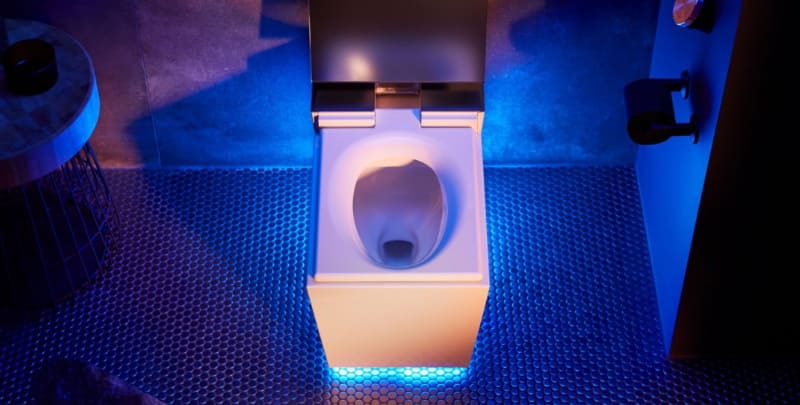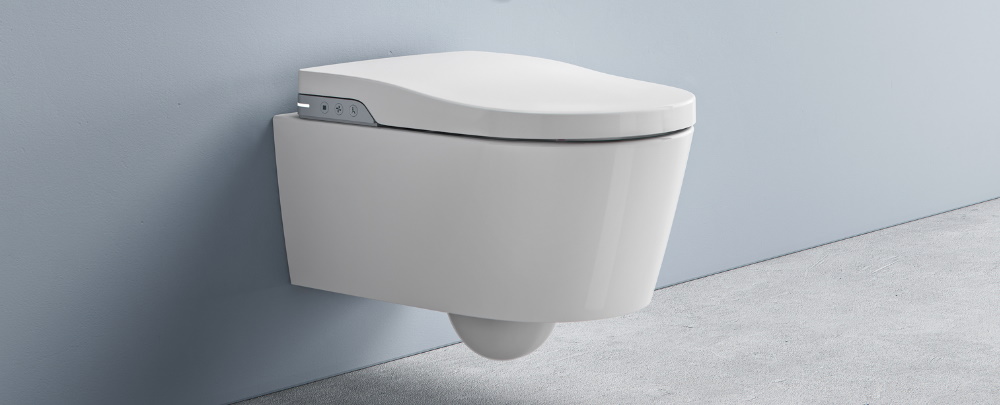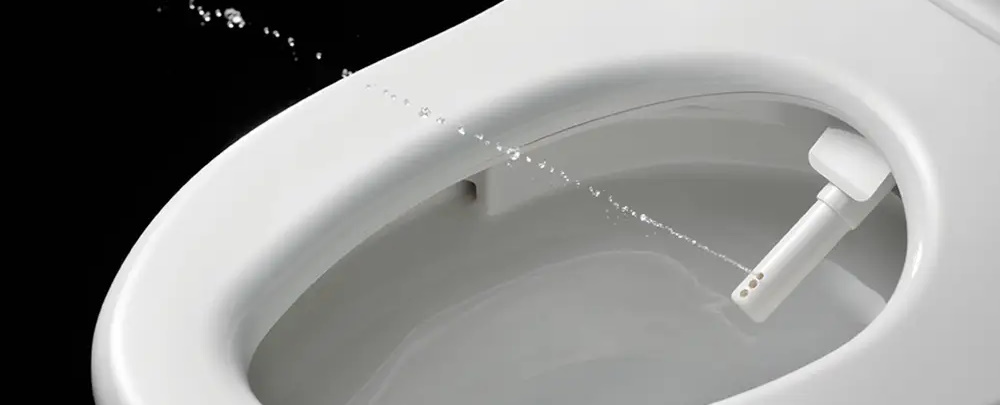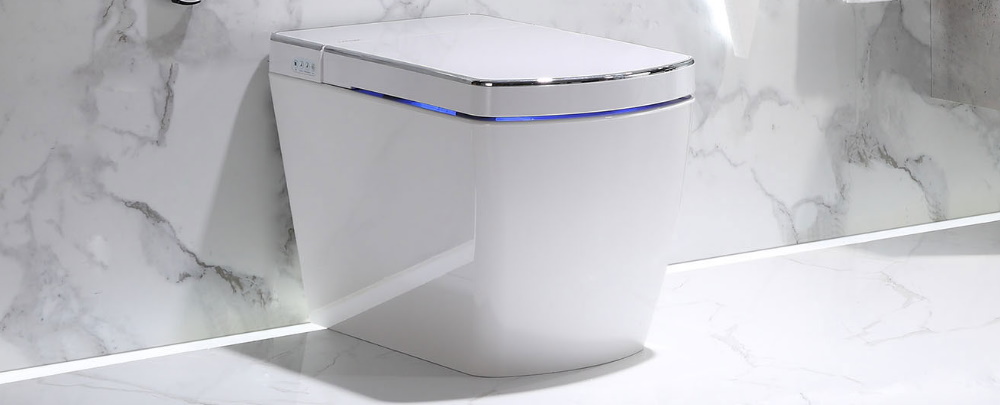
How Smart Toilets are Improving Health and Hygiene
You don’t have to travel all the way to Japan to experience the latest in toilet technology innovation. Although the “Land of the Rising Sun” is famous for its quirky technology, many of the latest innovations, like the hands-free smart toilet, are emerging from the United States and Europe.
This clever creation borrows from the bidet, adds a few extra bells and whistles and consequently becomes a toilet that can help reduce the stresses of a post-pandemic lifestyle.
Shared spaces like hotels, public transport and offices have been of concern ever since we first heard the name COVID-19. However, Peter Collignon from the Australian National University says bathrooms and toilets are spaces that deserve more attention.
“It’s time for a rethink on lots of things, and bathrooms are one of them,” said the professor of infectious diseases. “Infection control and protections should be as vital to bathroom design as fire safety.”
In an interview with The Guardian, Collignon advocated for the inclusion of infection control standards in future building codes, emphasising hands-free flushing, self-cleaning toilets, and sensor-activated taps.
While Collignon specifically referred to public restrooms, he implied no distinction should exist for bathrooms in private homes. How often has a bout of gastro entered your home only for it to cycle through every member of the family before exiting?
This is where hands free smart toilets have the potential to improve cleanliness and hygiene for you and everyone entering your home.

What is a Smart Toilet?
Common everyday appliances in the home constantly get updated with smart features, so it’s only natural that the toilet joins the ranks. Smart toilets take the familiar loo and give it advanced features like Bluetooth connectivity, built-in bidet seats, sensors and other additional features for added convenience and hygiene. Smart toilet suite features can include:
- Seat temperature control
- Night light
- Adjustable water temperature
- Automated seat raising and lowering
- Self cleaning capabilities
- Built-in speakers
- Hands free flushing
- Deodoriser
- Built-in bidet
- Warm air dryer
- Intuitive remote control operation
It’s unlikely that any one model will offer all of the above features, but every quality smart toilet will be capable of most. It’s also as close as you can get to a Japanese toilet without needing a passport.
But it’s the hygiene functions that make these intelligent toilets vital to the post-pandemic world. The built-in bidet, hands free flush and self cleaning capabilities in particular.

No Paper? No Problem!
We’ve all seen how difficult it can be to purchase toilet paper during a pandemic. Panic buying seriously caused shortages nationwide, although the situation has greatly improved. Except maybe it was to those who already own a bidet toilet.
The bidet function eliminates the need for paper by washing your backside using a water jet. Most smart toilets feature a rear nozzle that extends to wash and retracts after use.
Then the built-in air dryer takes care of the rest. This way, you can go about your business without ever having to reach for the toilet rolls.
By all accounts, adapting to this experience may take some time, but it certainly beats facing empty supermarket shelves and pondering over alternative wiping methods.
Discover The Kohler Veil
One of the best smart toilet manufacturers helping to make toilet paper obsolete is the Kohler Veil. This premium rimless toilet offers
- touchless flushing
- a heated seat
- a heated air dryer
- deodorising carbon filter and
- self-cleaning with sterilised water and an inbuilt UV light
This all-in-one experience occurs hands-free.
Porcelain throne of elegance is an apt descriptor for the loo, but it does possess a hefty price tag. In Australia, a Kohler Veil will set you back $6,966.
For anyone looking to upgrade on a budget, the bidet toilet seat could be the way to go. These clip-on accessories can add a bidet to your existing toilet, with prices starting at around $300. However, only a select few offer hands free flushing. They can also be bulky, potentially messing with the aesthetics of a home. There’s also the need for an electrician if no power point is close by. The smart features are useless without access to electricity.

The Future of Smart Toilets
The smart toilet industry is still in its infancy but is expected to grow quickly, possibly in response to the COVID-19 pandemic. As Professor Collignon points out, “The major way coronavirus is transmitted is via respiratory droplets, so you can catch it off surfaces that your hands touch.”
The more hands free toilets installed, the less likely it is that bathrooms become points of transmission.
If you’re looking to upgrade, there are a select few brands that have smart toilets available in Australia. Beyond the Kohler Veil, Lafeme and Roca brings a plethora of luxury, comfort and hygienic features to your toilet time. Although their models are priced similarly to the Kohler loo.
The Health Benefits of Smart Toilets
While we wait for the smart technology to become more affordable, academics are already looking to add more health benefits to the loo. An article on the Stanford Medicine News Centre titled “‘Smart toilet’ monitors for signs of disease” details a new technology that could become the number one source of data regarding your number twos.
Dr Sanjiv Gambhir has built a device for the toilet to detect a range of disease markers in both urine and faeces.
“It’s sort of like buying a bidet add-on that can be mounted right into your existing toilet,” he said. “And like a bidet, it has little extensions that carry out different purposes.”

Using physical, visual and molecular analysis, the toilet technology can detect several cancers, kidney failure and irritable bowel syndrome. Systems can then automatically transmit the data to secure cloud-based systems for potential integration into a health care provider’s records, ensuring easy access.
“The smart toilet is the perfect way to harness a source of data from users that is typically ignored – and the user doesn’t have to do anything differently.”
Game Changing Technology
Gambhir’s technology is still in the early stages of testing, but his goals include further developing the molecular analysis aspect. “That’s a bit trickier, but we’re working toward it,” he said.
Given the detectability of COVID-19 in wastewater, Gamnhir’s goals are incredibly timely. His technology could revolutionise the field, serving as a detector for future outbreaks and enhancing the original applications of the tech.
And unlike trips to the GP, there’s no avoiding the toilet bowl.
If you’re someone who whips out the sanitiser at every turn, a smart toilet could do more than help your peace of mind. And who knows, as the technology advances and starts analysing your poo, there might be a day when you can proudly declare “the smart toilet saved my life!”
Published: 2021-03-15

















